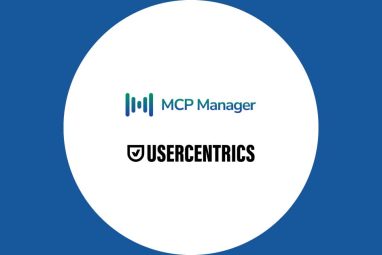SAP Launches Sustainability Solution Strategy For African Customers
SAP introduced its sustainability solution strategy for African customers. According to SAP Africa Chief Operating Officer Tracy Bolton, companies can choose to focus on sustainability as a key strategy – creating additional business value, and transforming their business by creating new products, services and solutions that reach additional customers, markets and segments. “In essence, sustainability […]
Topics

SAP introduced its sustainability solution strategy for African customers.
According to SAP Africa Chief Operating Officer Tracy Bolton, companies can choose to focus on sustainability as a key strategy – creating additional business value, and transforming their business by creating new products, services and solutions that reach additional customers, markets and segments.
“In essence, sustainability is a resource management issue, and SAP has specialised in helping companies optimise their resources for more than half a century,” said Bolton.
“The challenge is to make sustainability profitable, and to make profitability sustainable. Technology provides companies with the opportunity to leverage technology and bring transparency to their operations through improved measurement of Environmental, Social and Governance KPIs across their entire value chain. This can help African enterprises identify areas for greater efficiency to bring business processes onto more sustainable paths.”
Enabling enterprise & SME sustainability
SAP takes a two-pronged approach to sustainability by acting as an exemplar of sustainable best-practices, and an enabler.
“As a business that sits at the heart of global enterprise, SAP is uniquely positioned to enable more sustainable business practices for our customers,” said Bolton. “As an enabler, SAP provides access to business networks and technologies that can help companies meet their sustainability targets while also driving profitability.”
SAP’s Ariba Network, for example, is the largest of its kind in the world, facilitating 5.3 million organisations to trade more than $3.75-trillion in goods and services per year while also bringing greater transparency to enterprise supply chains.
“We are building sustainability capabilities into a broad range of our business solutions,” says Bolton. “The SAP Cloud for Sustainable Enterprises Portfolio gives business leaders access to a comprehensive suite of solutions that can be leveraged for quicker progress in achieving sustainability KPIs across their organisations, while the Sustainability Navigator provides an easy entry point into which solutions are most relevant to each customer’s sustainability efforts.”
Key solutions in SAP’s Cloud for Sustainable Enterprises Portfolio include:
- SAP Product Footprint Management, a cloud-based application used to calculate product footprints periodically and at scale across the entire product lifecycle;
- SAP Responsible Design & Production, which enables organisations to achieve their Extended Producer Responsibility (EPR) reporting obligations to governments and regulatory bodies accurately and on a global scale; and
- SAP Rural Sourcing Management, a multi-faceted solution that connects value chains from the most vulnerable – for example small scale farmers or waste pickers – through to global agribusinesses and consumer product companies.
“Customers can use the SAP Sustainability Control Tower to set and track their sustainability KPIs using data pulled from SAP and non-SAP systems to harmonise sustainability efforts across every aspect of their business, from finance, HR and real estate to operations and procurement. Our sustainability dashboard gives decision-makers easily understandable information about their sustainability performance, with actionable insights that can help drive continuous improvements in an organisation’s sustainability efforts without sacrificing profitability.”
Kwena Mabotja, Global Director: Purpose and Sustainability Marketing at SAP, says it is one of the global sustainability leaders due to its commitment to running its business sustainably. SAP has the products, people, partnerships and programs to drive sustainable impact at scale.
“Our Corporate Social Responsibility practices improve access to economic opportunity, education and employment, and the green economy. Such programmes are supported by a network of social partnerships, employee engagement, social impact management and the technical and business expertise of our global workforce.”
Mabotja cites the impact of initiatives such as SAP’s Procurement with Purpose program as an example of how companies can be exemplars in creating economic equity as part of their core business operations to achieve zero inequality. “We drive social and inclusive entrepreneurship by supporting social enterprises that are working to solve key sustainability issues by redirecting a set portion of our own spend their way. As part of our contribution to achieving net-zero waste, SAP’s local facilities team is also working to optimise water and electricity consumption at SAP offices using IoT and SAP’s Analytical Cloud. Data and insights gathered this way will be used to educate work-from-home staff to optimise water and electricity use at their own homes, further embedding sustainability across every level of our organisation.”









































































































